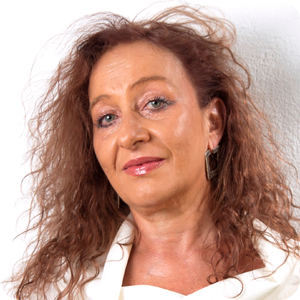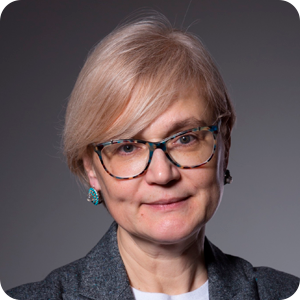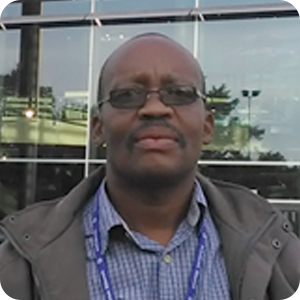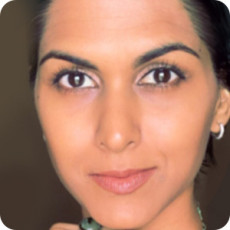The autumn of 2024 may prove to become historical due to a powerful event – the Summit of the Future, one of the most important high-level meetings of the United Nations. World leaders considered not only what the future of the planet will look like in the context of multiple conflicts, climate change, food insecurity, the refugee crisis, but also the rapid advances in new technologies. Although the summit may appear to have been similar to many others held recently, it proved to be momentous from the very first day when the parties negotiated and adopted the Pact of the Future which involves 56 action plans covering various fields, from multilateralism and the reform of international financial institutions, to combating climate change and the development of artificial intelligence. We asked development experts to share some thoughts on the importance of this document. Check their opinions below.
Key Takeaways:
- The United Nations’ Summit of the Future was held on 22-23 September 2024 in New York.
- World leaders have adopted a Pact for the Future that includes a Global Digital Compact and a Declaration on Future Generations.
- According to experts, the Pact for the Future differs from previous international agreements by taking a more holistic and integrated approach to global governance.
- The Pact brings together diverse stakeholders, including governments, civil society, and international organizations, to address pressing global issues such as climate change, inequality, and conflict, emphasizing collaboration and policy coherence rather than fragmented efforts.
DevelopmentAid: How does the Pact for the Future’s approach to global governance differ from previous international agreements? Why is it important and what mechanisms will ensure its implementation?

“After a decade of implementing the 2030 Agenda and achieving only 17% progress to achieve the 169 targets in the 17 Sustainable Development Goals, we should review the conviction that it is a market failure not to respond to this global governance ambition. The reality is more complex: we now face more wars, poverty has risen, with 20% of the world’s population enduring acute hardship, and we must adapt to increasing floods, droughts, and extreme temperatures. These challenges underscore the urgent need for an innovative approach. Imagine if we tried to unify the Ten Judeo-Christian Commandments, Islamic principles, and Buddhist teachings into a single set of rules. Would that succeed? This highlights the difficulty of imposing universal solutions on diverse and often conflicting perspectives. I am particularly inspired by young people worldwide who have taken the initiative to lead change. They know that if they do not act now, there could be a massive impact on their future. As 52% of the global population is under 30, their movements, like Fridays for Future and others that reinvent democracy like the Influencers, are not just a signal, but a beacon of hope for the need to re-evaluate today’s global agendas that a small group of representatives has shaped. We must reconsider how we engage at local, regional, and global levels, placing greater emphasis on integral education, civic training, and community empowerment. It’s not enough to rebrand Agenda 2030 as Agenda 2045 or the Agenda of the Future; we need a new paradigm that promotes a more harmonious existence with the earth and all its inhabitants. To move forward, we must rethink the system and approach it with more intelligence than merely repeating past efforts. This requires us all to listen more deeply — to the environment, each other, and the diverse voices that can guide us toward a sustainable future.”

“The Pact, as an acknowledgement of existential threats to the world, approaches the various facets of global governance holistically, reaffirming that the already existing commitments (resolutions and amendments) are the cornerstone of subsequent reform and better compliance with the UN Charter. By joining the Pact, individual countries confirm they are committed to the UN goals and are ready to reinvigorate international law and multilateralism to get the world back on track and to seize opportunities that the future may bring. It is noteworthy that the largest proportion of the actions set out in the Pact is devoted to transforming global governance and accelerating the reform of the international financial architecture. Other actions are distributed among four areas with international peace and security being the highest priority followed by actions to revamp the achievement of the SDGs. With international peace and security at stake now more than ever, the UN pledges to implement the long-discussed and urgent reform of the Security Council, targeting its effectiveness and representation, that is the scope and the use of the veto, and the expanding role of the UN’s members in the Global South as well as the balance between the two to ensure the effective functioning of the enlarged Council in the event of genocide, crimes against humanity or war crimes in particular when committed or supported by a member of the Security Council with the right of veto. A revitalization of the General Assembly, stronger coordination between the UN and international financial institutions, the existing governance mechanisms independent of the UN, effective international debt relief mechanisms, and international tax cooperation are some of the mechanisms that will ensure implementation of the Pact.”

“The Pact for the Future takes a holistic approach to addressing the world’s problematic issues such as poverty, inequality, and climate change. Unlike previous agreements, the Pact for the Future has an integrated approach as it brings together different stakeholders including governments, and civil society leading to effective global governance. This approach gives room for diversity of ideas as well as accountability and fosters collaboration among different stakeholders thus reducing the duplication of efforts. It also enhances legitimacy to governments and improves policy coherence. The Pact is important because it appreciates the limitations of the present global governance structures and aims to address the challenges facing humanity such as climate change, and conflict as well as food security among others. Mechanisms such as multilateral cooperation, monitoring and evaluation, and civil society engagement will ensure the implementation of the Pact for the Future. Monitoring and evaluation entail regular assessments and reviews which will help to track progress, identify gaps, and allow adjustments to the implementation strategy. Civil society engagement encourages active participation and ensures that diverse voices and perspectives are represented. In short, the Pact for the Future represents a shift in global governance, prioritizes human rights, sustainability, and cooperation to address the world’s most pressing issues.”

“The Pact for the Future represents a significant evolution in tackling complex global challenges, simultaneously modernizing global governance. Prioritizing urgent action on climate change, nuclear disbarment, and outer space governance, it distinguishes itself from previous agreements with actionable and accountable mechanisms with the introduction of monitoring systems to track implementation progress of the reforms in multilateral cooperation, and financial systems – giving space for deeper dialogue for developing nations especially in the digital era. The Pact emphasizes empowering future generations by ensuring their voices and human rights are considered in policy making moving forward, thus promoting a more equitable, sustainable world order.”
The future depends on individual actions made today. So, whether professionals are looking for a new job in six months or even a year, the search should start now as this is a laborious process. To save time and resources, DevelopmentAid offers Individual Professional Membership. Instead of spending time searching for jobs on dozens of websites, members can access more than 6,000 job opportunities in the international development sector in a single place. They also have access to tenders and grants for individuals, along with the contact information of the main organizations and donors working in the sector.

